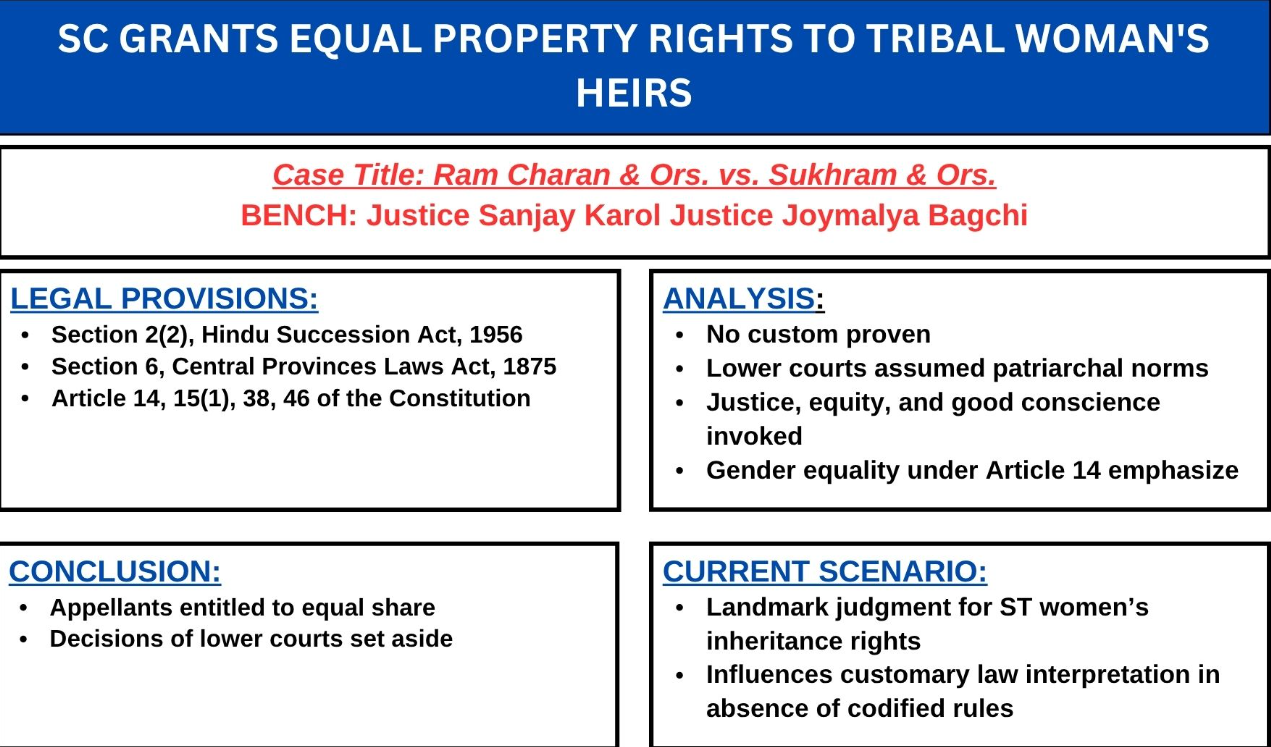PREVIOUS
Ram Charan and Ors. Vs. Sukhram and Ors
July 22 , 2025
15 hrs 0 min
31
0
- The verdict in Ram Charan & Ors. vs. Sukhram & Ors was given from an appeal denying female inheritance based on tribal customs.
- The Supreme Court has ruled that tribal women are entitled to equal rights in ancestral property.
- It was stating that excluding female heirs solely based on gender is discriminatory and unconstitutional.
- Exclusion of the tribal women from inheritance violates Articles 14 and 15 of the Constitution.
- Read together with Articles 38 and 46, they point to the collective ethos of the Constitution in ensuring that there is no discrimination against women.
- Even though the Hindu Succession Act 1956 does not apply to Scheduled Tribes, it doesn't imply automatic exclusion of tribal women from succession.
- The Court has emphasised that in the absence of any proven prohibitive custom or codified law barring women from inheritance, the principle of "justice, equity, and good conscience" must prevail.
- The judgment also clarified the incorrect understanding regarding the repeal of the Central Provinces Laws Act, 1875.
- The highlighted verdicts by the Supreme Court were the Mst. Sarwango v. Mst. Urchamahin (2013) and Tirith Kumar v. Daduram (2024).
- It was reversing the concurrent decisions of the Trial Court, the First Appellate Court, and the High Court of Chhattisgarh.

Leave a Reply
Your Comment is awaiting moderation.


